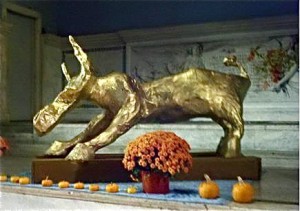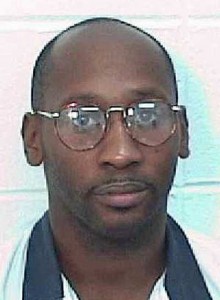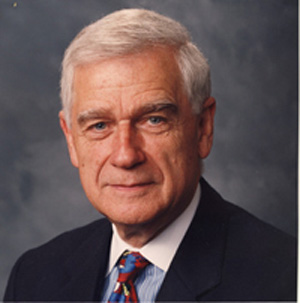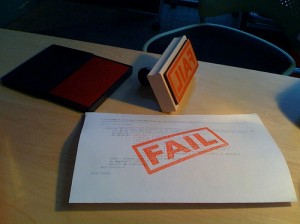constitution
Social justice index: USA No. 27 of 31. Democrats in Congress attempt to eat on $4.50 a day to protest potential budget cuts. Republicans shift focus from jobs to God. OpEd: Obama, the G20 and the 99 percent. In Congress, the rich get richer. The Shadow Superpower. And the U.S. sues South Carolina over immigration law.

Abuse at Afghan Prisons. How Catholic Conservatives could turn the GOP presidential race. OpEd: Jesus would not #OccupyWallStreet. OWS is "largely secular." Religious leaders see immigration as "God's Call." OpEd: Alabama new immigration law has unintended consequences. OpEd: Wall Street Worship. Could 2012 be the most ideological election in years? And much more.
 "Continuing a cycle of violence through state-sanctioned actions does not bring justice but only creates a culture of death and retribution. As a pro-life Christian, I believe the execution of Troy Davis shows a failure of moral leadership by both our country and the state of Georgia. The doubt surrounding the case of Troy Davis has served as a wake-up call to many in this country that our justice system is flawed and should not hold the power of life and death over any person. Justice should restore and heal, not destroy." -- Sojourners CEO Jim Wallis statement today, Friday Sept. 23
"Continuing a cycle of violence through state-sanctioned actions does not bring justice but only creates a culture of death and retribution. As a pro-life Christian, I believe the execution of Troy Davis shows a failure of moral leadership by both our country and the state of Georgia. The doubt surrounding the case of Troy Davis has served as a wake-up call to many in this country that our justice system is flawed and should not hold the power of life and death over any person. Justice should restore and heal, not destroy." -- Sojourners CEO Jim Wallis statement today, Friday Sept. 23
I just returned from a very moving convocation at the Claremont School of Theology where I am on the faculty. We were celebrating the historic founding of a new interreligious theological university that brings together institutions representing the three Abrahamic faiths, along with our newest partner, the Jains. The Jains are an eastern religion founded in India over 2,500 years ago who are perhaps best known for their deep commitment to the concept of no-harm or ahimsa.
While each partner institution will continue to train religious leaders in their own traditions, the Claremont Lincoln University will be a space where future religious leaders and scholars can learn from each other and collaboratively seek solutions to major global issues that no one single religion can solve alone. The CLU's founding vision of desegregating religion was reflected in the extraordinary religious diversity present at the convocation held in a standing room-only auditorium. I sat next to a Jewish cantor and a Muslim woman who had tears flowing down her face as we listened to the prayers offered in all four religions along with a reflection from a Humanist speaker.
Did anyone else get the feeling, as we watched weather reporters wave their arms frantically in swirling motions across oversized maps of the eastern seaboard -- with their eyes bulging as they pushed out whole paragraphs without a single breath for a period -- that this was all hype?
Last weekend, as Irene passed over town after town in the mid-Atlantic, memories of Katrina did not materialize. By the time Irene huffed over New York City on Sunday morning, and the flood of the century was actually just a really big puddle in Battery Park and a floating lifeguard stand in Long Beach, my fear had transformed into complacency. From there I became cynical. By Sunday afternoon I found myself watching the weatherman's bulging eyes as he repeated the mantra of the day: "It's not as bad as we thought it would be, but it's not over." And I thought: "Boy, they'll do anything for ratings."
But it wasn't all hype.
 Mark O. Hatfield's political witness shaped a whole generation of students, teachers, pastors, and social activists in the evangelical community and beyond. The voice of Christians today who plead for social justice and peaceful alternatives to war would not have emerged with its strength and clarity in the 1970s without his leadership. His death underscores the vacuum of such spiritually rooted voices uncompromising in their commitments to peace and justice within the cacophony political rhetoric today.
Mark O. Hatfield's political witness shaped a whole generation of students, teachers, pastors, and social activists in the evangelical community and beyond. The voice of Christians today who plead for social justice and peaceful alternatives to war would not have emerged with its strength and clarity in the 1970s without his leadership. His death underscores the vacuum of such spiritually rooted voices uncompromising in their commitments to peace and justice within the cacophony political rhetoric today.
One of my life's greatest privileges and joys was to work as an assistant to Senator Mark O. Hatfield for nearly a decade, from 1968 to 1977. I saw first-hand what courageous leadership, combined with unswerving compassion and civility, looked like within the political life of that turbulent and formative era. Those experiences are shared in my book, Unexpected Destinations (Eerdmans).
I started running because of my sister. Kim and I began when we were pre-teens. I believed running was the key to making me more like her -- 5 foot 9, lean, beautiful, and highly intelligent. There was one problem: I hated running. After forcing myself to do it for a while, I was disappointed. My dreams of who I would become were dashed, and all I got from trotting around was a lower resting heart rate and bulky thighs.
Years later, much has changed -- including my relationship with running. Following her multiple-sclerosis diagnosis in 2009, Kim, who was once a long-distance runner, has retired her running shoes. She hasn't hit the pavement in more than one year. I still run. Something in my spirit won't let me quit.
Last weekend, I completed my fourth half marathon in Washington, D.C. As I toed the start line, a story began to unfold. At 7 a.m., it was barely 35 degrees outside and still dark. I was surrounded by a sea of 16,000 people -- all of whom were present for one thing: to put their bodies to the ultimate test. This morning was all about endurance.
I spent all day Saturday at a middle-school debate tournament. My seventh-grade son Luke loves being on his middle school baseball team, but also on the debate team, and this weekend his school competed with ten others. It was fascinating to watch and fun to be there. The topics of debate included statements such as, "All private citizens should be prohibited from owning a hand gun," and "Social media networks should have a minimum age of 18 or older to be a member." They have previously taken up subjects like "Should the U. S. leave Afghanistan?" "Is torture ever justified?" and "Should the Redskins (our local NFL football team) change their name?" Joy and I thought it was pretty cool that a public middle school would even have a debate team, with 6th, 7th, and 8th graders taking up subjects like that, and it helped draw us to Alice Deal Middle School.
In the old days, in the coal towns of West Virginia, winter was a time when folks hunkered around the pot-bellied stove and whiled away time spinning stories. At times, someone would fiddle with the draft, poke the coal embers, and release an extra dollop of acrid coal smell. Houses were drafty. Your front side facing the stove could be burning up, your backside shivering cold.
When I first heard the announcement to rise for "the presentation of the colors," I didn't understand what that was.
Last month, an encounter between Michelle Obama and a Latina child in a suburban Maryland school brought into sharp relief one of the most pressing issues surrounding U.S.
